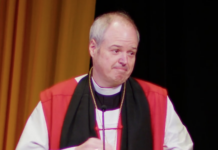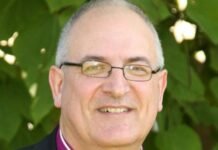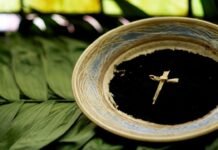I love the words of the 2nd century bishop, Iranaeus, when he said: “In every language they sing a hymn to God in unison, for the Spirit brought the scattered people together in unity and offered to God the first fruits of the nations.” It has always struck me that it is only when the hard work of unity, of solidarity, is accomplished that we can truly offer a hymn to God, and there is no greater need for building unity and solidarity than at this uncertain, confusing and contested time in which the world struggles to comprehend the challenges of the coronavirus.
Since before South Africa’s first lockdown came into effect, leaders of member churches of the SA Council of Churches have met regularly to discuss our role in the pandemic. As we worked through the issues and listened to the medical scientists, we heard that we will have to live with this virus for months, even years, and that it might return again and again to disrupt our lives. Moreover, it became clear that the question we faced was not whether worship would be resumed – we will not be closed in perpetuity, the question is rather when and how we will re-open. It also became clear that we cannot expect the Government to legislate in all the detail needed as to how to re-open, neither is it desirable to allow them to do so.
As a result, a sub-committee of church leaders that I led compiled detailed representations, based on the principle that we should regulate the re-opening of worship and other activities ourselves. (An excerpt from the representations which outlines steps to be taken before worship can resume can be found here. Later, the SACC released a comprehensive report, including some amendments, which can be found here. See pages 3-8.)
We held a number of discussions with Government, at the end of which President Ramaphosa announced publicly that they had accepted our representations. It has to be said that he acted unexpectedly quickly, and it is a pity that we were unable to co-ordinate our communications because his announcement led to unnecessary panic. But we welcomed the trust which the Government had placed in us, albeit in trepidation at the enormous responsibility placed on our shoulders.
Now we need to decide the when and the how. But we must be cautious and act prudently. The Spirit of Pentecost is also one of wisdom. Paul, who rejoiced always in the Spirit alive in him after years of ministering and exercising oversight of the churches, had to remind the Galatians that a fruit of the Spirit was also self-control.
As I said in my first response to President Ramaphosa’s annnouncement, the conditions we have proposed for resuming worship are comprehensive and detailed. The detail, laid out in the documents I referred to above, needs to be studied carefully, but they require, for example, a limit of 50 people in services, disinfecting surfaces between services, physical distancing in churches, the avoidance of shared hymnals and prayer books, the wearing of masks during services, restrictions on singing, avoidance of the common chalice at Eucharist, no gatherings after services and rigorous hygiene in toilets and elsewhere.
Among those within ACSA whom I consulted on the SACC representations were members of the Provincial COVID-19 Advisory Team, which comprises medical, legal and theological experts, and is co-ordinated by Dr Arthur Manning assisted by the Deputy Provincial Registrar, Rosalie Manning. In response to South Africa’s Level 3 lockdown, I asked the team to come up with a consenus view on how to move ahead. A number of Bishops have also consulted with their Dioceses and taken preliminary decisions themselves.
The COVID-19 Advisory Team gave me a preliminary report yesterday. From that, and the reports from Dioceses, the following main points have emerged:
- The Advisory Team reports a consensus that it is not yet time to resume worship.
- No Diocese so far has pronounced that it is ready to resume worship;
- Most reports suggest that it will take a month or two – or longer – to gather the data needed before a decision can be made.
- There is no one-size-fits-all approach to re-opening for worship. Dioceses outside South Africa have differing lockdown regimens. Within South Africa, different Dioceses face differing levels of infection and will have to adjust their strategies according to data on the level of risk in their areas (just as Government is doing).
- The Advisory Team suggests that Dioceses should show solidarity by agreeing that either all parishes within a Diocese should resume worship, or none should. Since parishes with fewer material resources will find it more difficult to be ready for worship, this would encourage those with more resources to partner and share with others.
- There is a need for legal clarity on levels of approval for coronavirus readiness plans and the legal liability of Dioceses and parishes in the event of infections contracted in church. Some Dioceses suggest that parishes need to be accountable to Dioceses for meeting conditions enabling them to return to worship, with designated Coronavirus Compliance Officers ensuring that safe conditions are met.
Apart from the steps to be taken to prepare for a return to worship, once services resume there will be other challenges. For example:
- How should leaders in a parish respond if more than 50 worshippers arrive for a service?
- How should they respond if congregants begin singing or mingling spontaneously?
- There is very serious concern about the return of parishioners and clergy who are over 60 years old. In a consultation church leaders held last weekend with Professor Salim Abdool Karim, who chairs South Africa’s Ministerial Advisory Committee on COVID-19, he warned us that the death rate for COVID-19 patients between 60 and 70 is three times higher than for others, and the risk is particularly big if conditions such as diabetes and hypertension are not well managed. For those above 70 with pre-existing conditions, the risks of having COVID-19 are very high, and they should self-isolate and stay at home until a vaccine is found.
All these issues, and others in the SACC guidelines, need to be addressed before we can return to worship. My hope is that we can develop a phased process of planning and return to worship, linked to significant festivals in the calendar, such as:
- Trinity Sunday
- Corpus Christi
- The Feast of the Transfiguration, and
- The Commemoration of Robert Gray.
There are also matters other than worship to address. Churches can be open for private prayer, for feeding the hungry, for helping with the overflow from schools and for testing where this is possible. Clergy who are teachers, school chaplains and professors will be walking alongside pupils as schools open, hospital chaplains will continue their ministry under guidelines laid down by hospitals, and police and military chaplains should continue supporting these men and women who ensure our safety and security. The National Church Leaders’ Forum of the SACC continues to meet to review and study together all the areas which call for mutual action and joint articulation.
New, shared leadership and energy is emerging amidst the uncertainties of the pandemic. This is truly Pentecostal for it is what the Spirit always does; it calls to newness and to transforming power. Together, let us seize the opportunity to work with the challenge and come out of this time a better church and better Christians. As President Ramaphosa has reminded us, let us also remember Madiba’s exhortation: “It is in our hands.”
God bless you.
††Thabo Cape Town



